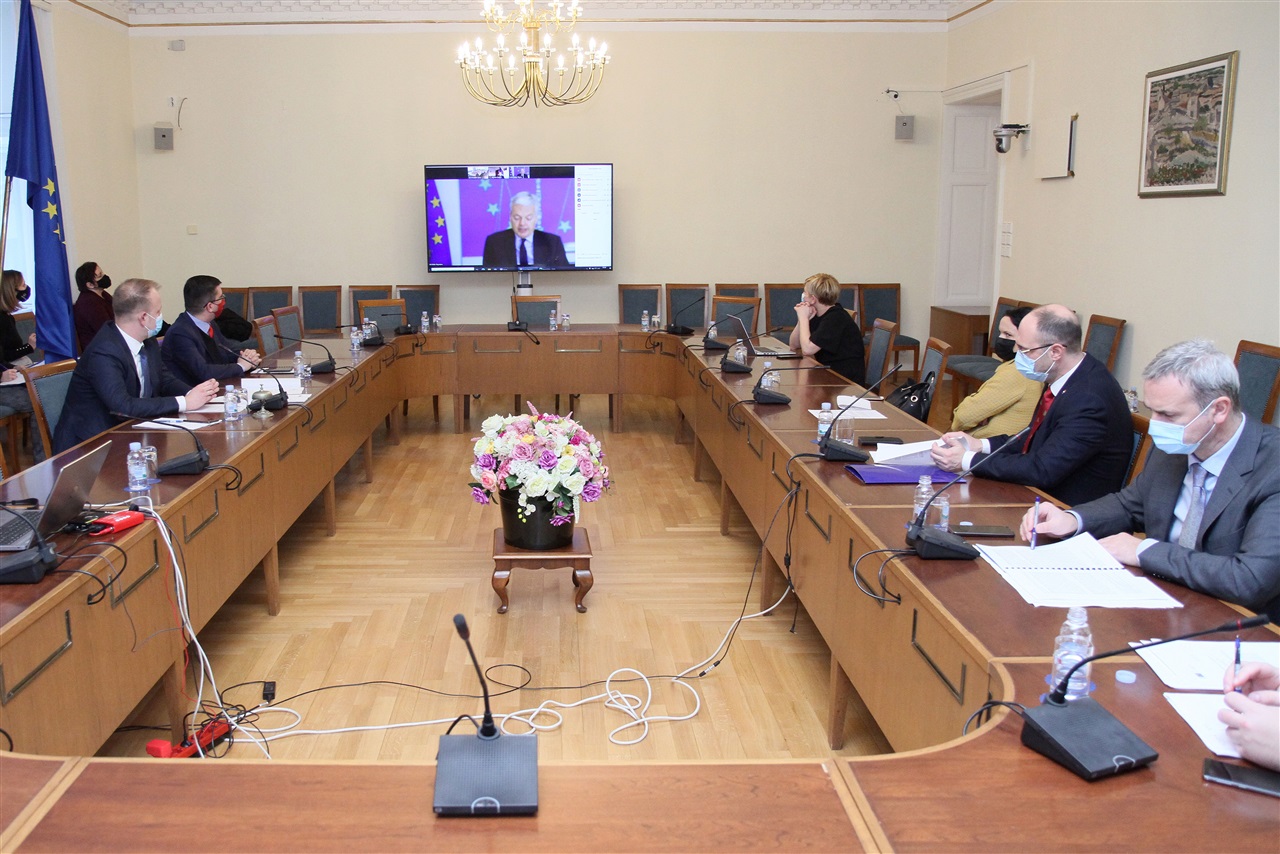
Zagreb - Members of the Judiciary Committee and the European Affairs Committee held a videoconference with the European Commissioner for Justice Didier Reynders and discussed the first European Commission 2020 Annual Rule of Law Report and the accompanying Country Chapter on the rule of law situation in Croatia.
Opening the meeting, the Chairman of the Judiciary Committee Mišel Jakšić and the Chairman of the European Affairs Committee Domagoj Hajduković thanked Commissioner Reynders for the valuable initiative to hold a virtual discussion on the Rule of Law Report with EU Member States. Supporting the annual reporting initiative, they emphasized that the European Union is based on the rule of law, and that the primary responsibility of all Member States is to ensure that the rule of law is upheld, with a focus on promoting inter-institutional cooperation.
Commissioner Reynders briefly explained the Report, in particular as regards the efficiency, quality and independence of the judicial system, the anti-corruption framework and media pluralism. In the context of Croatia, he especially referred to the role of the State Judicial Council and the State Attorney's Council in the selection of judges after the legal changes in 2018, pointed out the lack of specialized financial investigators in the State Attorney's Office, the importance of digitalization of the judiciary, but also the prevalence of corruption at local level and the importance of the Anti-Corruption Strategy for 2021-2030. He also referred to hate speech and threats to journalists, stressing the importance of insisting on freedom of speech and independent journalism.
During the discussion, the participants pointed out the need to strengthen the institutional fight against corruption and the role of the Commission for the Prevention of Conflicts of Interest, mentioning also the dealings of individual courts in which cases are assigned to judges manually. Also, it was pointed out that the sessions of the Constitutional Court are not public when issues of public interest are discussed. It was stressed that each country has its own specifics and different institutional systems, but that in the application of the rule of law it is necessary to ensure standards and principles that are applicable in all countries.
It was said that the Rule of Law Report is a quality and encouraging document and that the following Reports should provide more precise examples of good and bad practice in individual countries. Despite the reports of judicial institutions in the Republic of Croatia, which indicate positive developments, the perception of the work of the judiciary is still low, it was pointed out in the discussion. The need to strengthen civil society organizations in the field of protection of human rights and the fight against corruption was also stressed, as well as the inclusion in the next Reports of data on compliance with and implementation of judgments of the European Court of Human Rights in Croatia.
In his closing remarks, the Commissioner thanked the participants for their questions and the quality of the debate, stressing the need to continue the dialogue with national authorities and all stakeholders in order to involve all Member States objectively and impartially to strengthen the Union's action in the field of the rule of law, including through funding instruments and programmes. For further dialogue with national authorities, Commissioner Reynders announced a visit to Croatia.